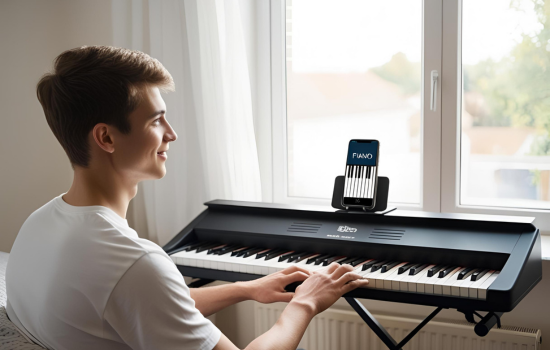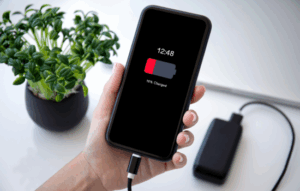Advertisements
You are one habit away from transforming your talent
Learning the piano doesn't depend on innate talent, but rather on daily decisions. A simple routine can completely change your relationship with music.
Even with little time, you can make progress if you practice with intention and consistency. The key is to start and not stop.
Advertisements
How to practice without getting frustrated or giving up
Having a structured practice routine is what separates those who progress from those who give up. You don't need hours a day, but you do need commitment. With just 15 minutes a day, well spent, you can improve your coordination, musical memory, and confidence.
Start by setting a realistic schedule. Consistency is more important than duration. Use the app's reminder feature to stay in the habit. Instead of jumping between multiple lessons, focus on mastering each step before moving on to the next.
Advertisements
See also
- Fortifying tea: boost your little friend naturally
- Optimize your battery
- Your Voice and Your Stage: Karaoke Now!
- Monitor conversations: take care of those you love most
- Boost your confidence with habits that activate your little friend
Variety also helps. Alternate between scales, rhythm exercises, and songs. Listening to what other beginners play can inspire you and give you new ideas. You can even record yourself to evaluate your progress and notice details you miss in the moment.
Adjust your expectations. At first, it's normal for your hands not to respond the way you want. Don't get frustrated. Every finger that finds its place is a victory. Practice makes clumsy become natural. And little by little, you'll see how the songs flow.
What sabotages your progress the most (and how to avoid it)
There are silent obstacles that can hold back even the most motivated person. The first is skipping days. When you interrupt your study rhythm, you'll lose agility and muscle memory. A break becomes a habit… and that's when the setback begins.
The second common mistake is going too fast. Trying to play complex songs without a foundation leads to frustration. It's better to master a simple piece confidently than a difficult one only halfway. Apps offer progressive paths for a reason: stick with them.
Another negative factor is comparison. On social media, you'll see people playing fluently. Remember, many have been practicing for years. Comparing yourself to them only undermines your confidence. Compare yourself to yourself a week ago. That's when you'll see your true progress.
Finally, take care of your posture. Playing tensely or with a bad position can cause discomfort. Some apps teach relaxation techniques and proper posture. Listen to them: your body is also part of learning music.
Keys to maintaining long-term motivation
Motivation isn't constant, but it can be cultivated. A great trick is to set small goals: finish a lesson, record a song, learn a new scale. Celebrating these achievements releases dopamine and reinforces the habit.
Another strategy is to play what you love. If a song moves you, you'll be more motivated to practice it. Make a list of your favorites and look for simplified versions in the app. The pleasure of playing something you love will keep you hooked.
Integrate your environment. Create a comfortable practice space with good lighting and no distractions. Use headphones to connect more with yourself. If you can, share your progress with friends or family. Positive feedback adds up.
And remember: you're not alone. There are online communities for beginner pianists where you can share questions, tips, and progress. Joining one of these spaces can give you the boost you need on days when you're feeling down.

Your music starts now
Do you know what all people who know how to play the piano have in common? They just started one day. They knew nothing, they made mistakes, they got frustrated… but they kept going. You're right there at that starting point, and that's exciting.
Apps have shown you that learning the piano doesn't have to be complicated or expensive. You've discovered tools that guide you step by step, adapted to your time and pace. You've understood that it's not about miraculous talent, but rather about consistent practice.
You don't need a grand piano or a demanding teacher. You need your will, a cell phone, and a few minutes a day. The music already lives inside you, just waiting for you to let it out. Playing the piano is more than just moving your fingers: it's communicating, it's feeling, it's transforming.
So today, don't think about what you're missing. Think about all you can accomplish if you start now. Hit your first key. And let it be the first of many.




